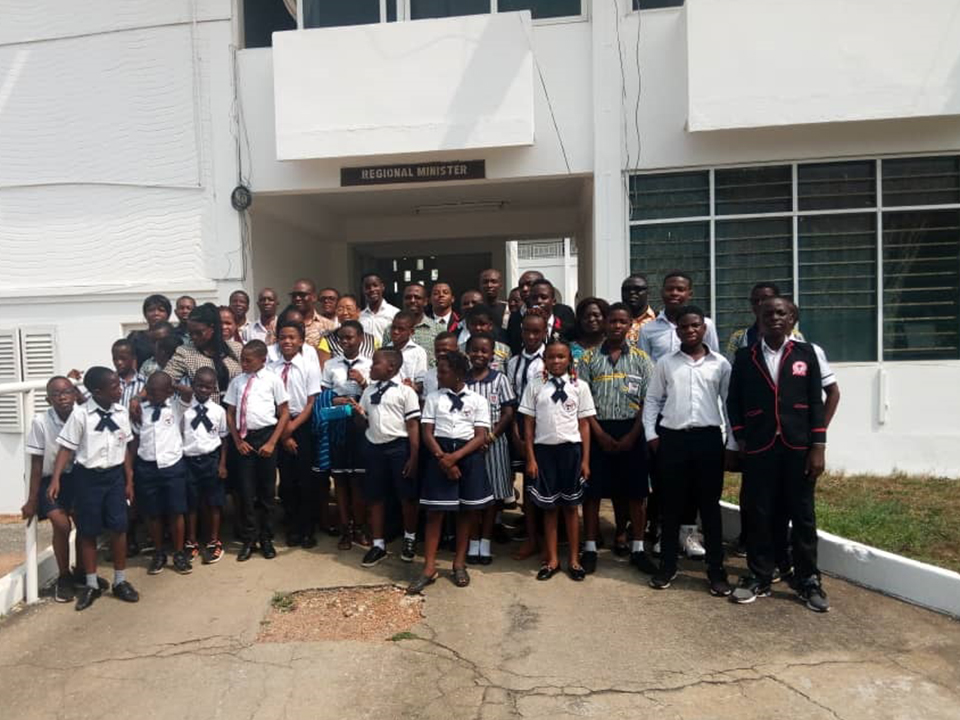Speakers at the maiden Advancement Lecture Series have underscored the need for government to adequately resource statutory institutions and agencies mandated by the constitution to effectively fight corruption in the Country.
They expressed worry that since independence, various governments have instituted measures to fight the canker but have not been able to strengthen institutions to perform their role expeditiously.
The lecture featured Mr. Kwadwo Oppong Nkrumah and Mr. Abraham Amaliba both alumni of the university who spoke on the topic “A Multipartite Approach to Combat Corruption-How Can We Achieve this?”
Mr. Oppong Nkrumah in his presentation said, since 1992 no report from the Public Accounts Committee of parliament has been tabled before Parliament for adoption. “There has been a lot of T.V drama about the work of the PAC, but there has been no results”. He wondered whether Parliament could fight corruption and do a proper check on the executive arm of government when some of the legislators play active roles in the executive. He opined that “if the practice of appointing 50% of parliamentarians into the executives was stopped, the institution would be bolstered in the fight against corruption in the country”.Mr. Nkrumah cited a World Bank report that put the size of corruption the world-over as $1 trillion and $48 billion in Africa annually.
The former host of Joy FM morning show advocated for the codification of the code of conduct for public officials into law, for the effective fight against corruption. He reiterated his party’s (NPP) position of appointing an Independent Public Prosecutor to prosecute on behalf of the Commission of Human Rights and Administration Justice and other such bodies. He said there was no need to overhaul the current tools in fighting corruption in the country but rather called for the upgrade of the existing machinery in that direction.
Taking his turn, Mr. Abraham Amaliba called for the decoupling of the “giver of bribe from the taker” so that such persons could be used as prosecution witness against takers adding that “We need to decouple the giver from the taker, if we decouple and criminalized bribe taking, we can use the givers as prosecution witnesses since it is not all truth that can be proven”. He said public confidence in the fight against corruption was waning because of the long-standing mistrust they have for politicians. He noted that “the fight must not be left in the hands of the politicians alone, and it is not in the interest of the politician to eradicate or reduce corruption”.
Commenting on the issues raised by the two speakers, Mrs. Linda Ofori Kwafo of the Ghana Anti-Corruption Coalition said the crusade against corruption started way back in the 1960s and has continued in the current constitutional dispensation without any serious headway. Despite numerous laws and bodies set up in the constitutional era the canker is still very rife in the society she added.
Mrs. Ofori Kwafo wondered how the appointment of the Independent Public Prosecutor could help in the fight against corruption since the executive would appoint such individual for the office. She however suggested that “For this to be effective, we should adopt measures that will really make them independent so that the purpose for the appointment could be achieved. ”
She reiterated the call for the implementation of the numerous laws on corruption and also called for the passing of the freedom of information bill into the law to strengthen the arms of those charges with the fight against corruption.
The Vice-Chancellor, Prof. D. D. Kuupole chaired the function.

